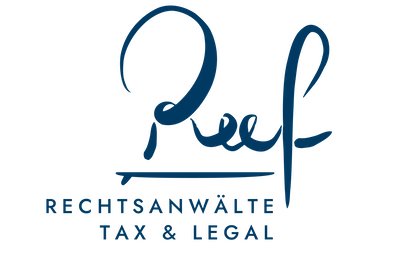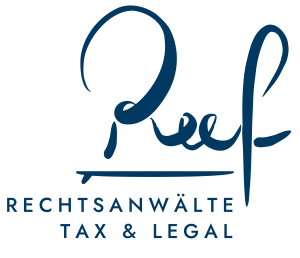Notarisation
of the company purchase agreement

Notarisation is not necessary for every company purchase, but may be mandatory under certain circumstances. What does the legal situation look like in detail? What role do the type of transaction and the type of company play? And what tasks does the notary take on when buying a company? To answer these questions, we will first look at the different types of mergers & acquisitions transactions and then explain the notary's duties.
In some cases, you can save the cost of a notary when buying a company. However, you will always need tax and legal advice. You can rely on us as an experienced partner for tax law, labour law and commercial and corporate law. We will ensure that your business transactions proceed in your best interests and that all legal aspects are carefully considered.
Notarisation requirement
In principle, there are no legal formal requirements for a company purchase in Germany. Notarisation is therefore not automatically mandatory. However, the type of transaction can lead to a notarisation requirement. A distinction is made between a share deal and an asset deal. While an asset deal involves the transfer of individual assets, a share deal relates to company shares.
A distinction is made between a share deal and an asset deal. While an asset deal involves the transfer of individual assets, a share deal relates to company shares.
A) Share deal
In the case of a share deal, notarisation is mandatory if the target company is a GmbH or UG. The background to this is the assignment in rem pursuant to Section 15 (3) GmbHG and the obligation under the law of obligations pursuant to Section 15 (4) GmbHG. Both require the purchase agreement to be notarised. This also applies to options, purchase offers and similar dispositions. These must also be notarised in order to be legally valid. According to the Federal Court of Justice, this is intended to make trading in GmbH shares more difficult. Notarisation also makes it easier to provide evidence of share transfers.
ASPECTS
- Type of deal: Share deal with GmbH or UG
- Notarisation obligation: In accordance with § 15 para. 3 & 4 GmbHG
- Rush protection: Notary advises both parties of the legal consequences and risks. This prevents premature and uninformed decisions.
- Facilitation of evidence: All agreements are deemed to have been clarified by the notary's seal. Any subsequent reference to ambiguities shall become invalid.
- Costs and time required: Time-consuming and costly, but legally justified
- Entry in the commercial register: The required entry in the commercial register can only be made by a notary. Necessary in the event of changes such as a change of management, change of legal form, change of registered office, change of shareholders and amendment of the shareholders' agreement.
B) Asset deal
Notarisation may also be required for an asset deal - if a property located on German soil is part of the transaction. According to Section 311b BGB, the transfer of the property must be notarised.
Incidentally, this also applies if a limited liability company with associated property is transferred. Only the notary can make the declaration of conveyance in the land register.
Notarisation is also required if the shares of a GmbH or UG are to be disposed of as part of the asset deal in accordance with Section 15 GmbHG.
There is no general notarisation requirement for asset deals if the assets to be transferred are expressly and conclusively listed in the purchase agreement.
However, a catch-all clause that transfers all of the seller's assets as a lump sum makes notarisation mandatory in accordance with Section 311b (3) BGB. In this context, a lump sum means that all of the seller's assets are transferred. The background to this is the warning function of the notarisation obligation. In this way, the seller is protected against a frivolous sale of his assets.
ASPECTS
- Type of deal: Asset Deal
- Notarisation obligation: Not clearly prescribed by law
- Necessity of notary involvement: Not mandatory, often this is not done in order to save costs
- Exceptions to notary involvement: When individual tangible or intangible assets are sold, e.g. machinery, equipment or customer and supplier contracts.
- Risks in the absence of notary involvement: If necessary, the entire legal transaction may be invalid without a notary (catch-all clause). The seller could reclaim the transferred items, but would then also have to repay the purchase price.
c) AG, KG, OHG and GbR
Shares in a public limited company (AG) and participations in a GbR, KG, OHG, cooperative or an association can be transferred in Germany without notarisation. If real estate and property come into play, a notary must be consulted in accordance with Section 311b BGB.
Tasks of the notary
A contract concluded as part of a mergers & acquisitions transaction is also known as a signing. A notary turns the signing into a regulated process. He checks the contract from an independent perspective and ensures that all legal regulations are complied with. To this end, he liaises with the contracting parties.
On the day of signing, it must be ensured that the participating persons are genuine and have the right to conclude the contract. In accordance with the Money Laundering Act, the notary must check whether there are other parties with an economic interest behind the contracting parties.
For German companies, the notary can find all relevant information in the commercial register. In the case of foreign companies, proof of identity can take longer. Corresponding documents must be provided with an apostille in order to be considered legally binding. Notarised translations may also be necessary.
Who pays the notary fees when selling a company?
As a rule, the buyer bears the notary fees and may choose the notary accordingly. The notary fees are essentially based on the value of the property. You can view the approximate costs in the fee calculator. A fee rate of 2.0 is normally applied.
The maximum amount for the object value is currently 60 million euros. This results in 53,170.00 euros (plus VAT) in notary fees. If the maximum amount is not reached, notarisation in a foreign language can lead to an increase in the transaction value by 30 %. The agreement of a choice of law clause that is not merely declaratory also results in an increase in the transaction value by 30 %.
Documentary completeness in the acquisition of a company and ancillary agreements
In addition to the purchase price and a clear definition of the object of purchase, the notarised deed must contain all agreements that are inextricably linked to the purchase agreement. These include guarantees that must be provided on the basis of a due diligence review before the transaction is complete. Whether additional agreements also require notarisation depends on the respective content.
a) Company valuation
The company valuation can, for example, be based on the capitalised earnings value, the net asset value or a comparison with similar companies. The reason for subsequent disputes is often the earn-out clause. This means that part of the purchase price is based on the future performance of the company. It makes sense to include this in the notarised deed.
b) Financing commitments
As the purchase agreement is not usually made dependent on a financing commitment from a specific institution, financing commitments from third parties (equity commitment letters) do not have to be notarised.
c) S&I insurance
Warranty and indemnity insurance taken out by the buyer does not normally require notarisation either. Otherwise, the invalidity of the insurance contract would affect the validity of the purchase contract.
d) Regulatory matters
Antitrust approvals, provisions of the Foreign Trade and Payments Act and other regulatory provisions may become relevant before the closing of a company acquisition and in some cases require notarisation.
Company purchase agreements and the consent of the shareholders
The approval of the shareholders or the shareholders' meeting is usually decisive for the validity of a company purchase agreement.
- GbR: The consent of all partners is required if the sale is not regulated in the partnership agreement and exceeds the externally recognisable purpose of the partnership.
- GmbH: The consent of the shareholders' meeting is required if the sale of the company is considered an extraordinary transaction.
- AG or KgaA: The approval of the Annual General Meeting must be obtained if the sale entails a fundamental structural change or if the purpose of the company can no longer be pursued without the sold assets.
- oHG or KG: The sale of material assets requires the consent of the partners. In the case of an extraordinary transaction, the consent of all limited partners is also required.
Conclusion: The notary - an important support when selling a company
Notarisation when buying a company costs time and money. If considerable resources have already been invested in tax and legal advice, it is better to avoid these additional costs. However, this is often not possible, as notarisation is mandatory in many cases.
Even if the notary can be consulted voluntarily, he should not be dispensed with. Notarial advice is provided from an independent perspective and provides additional certainty that the contract documents drawn up by lawyers are watertight.
Get professional advice from Reef Legal
When buying a company, it is common practice to negotiate the purchase agreement with the help of lawyers and tax advisors. This is the only way to ensure that all legal and tax aspects are correctly mapped out. The next step is to go to the notary, who also checks the details of the contract.
At Reef Legal, we provide you with expert support from the planning of your M&A transaction to the signing of the contract. Whether buyer or seller - we represent your interests and develop a customised solution.



